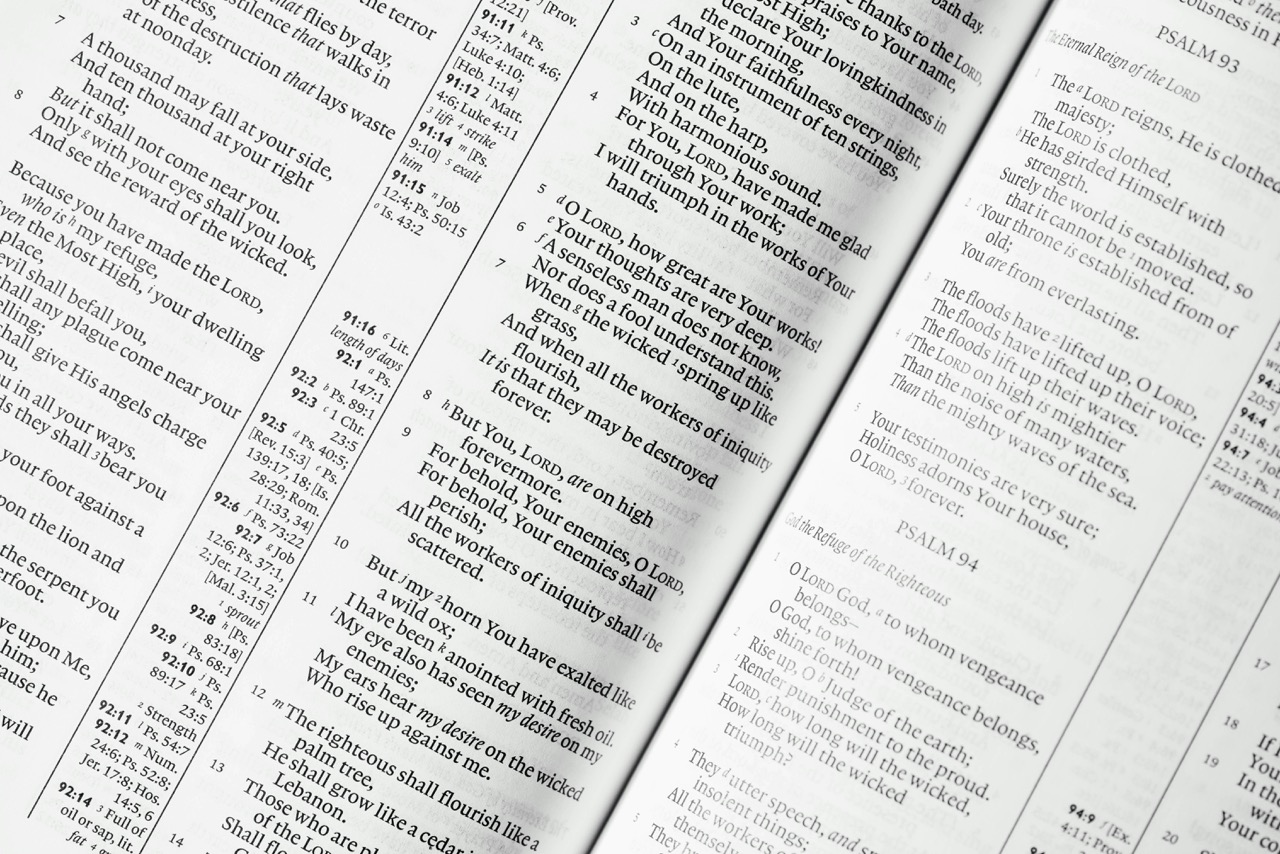The Role of Famine in Genesis: Testing Faith and Survival

The Book of Genesis, the first book of the Bible, lays the foundation for many of the theological and moral lessons that resonate throughout Judeo-Christian traditions. One recurrent theme within this narrative is the occurrence of famine, which serves not only as a backdrop for various stories but also as a profound test of faith for the characters involved. Famine in Genesis illustrates the fragility of human existence, prompting individuals to confront their beliefs, make critical choices, and grapple with their survival instincts. This article will explore the multifaceted role of famine in Genesis, highlighting its function as a test of faith, the varied responses of key biblical characters, the theological implications it carries, and the lessons on resilience derived from these narratives.
Understanding Famine as a Test of Faith in Genesis
Famine in Genesis emerges as a significant divine instrument, often serving to test the faith of individuals who encounter it. These periods of scarcity compel characters to confront their dependence on God and the stark realities of their situations. In many instances, famine acts as a catalyst for pivotal decisions that reveal the depth of their faith. For example, the famines experienced by Abraham and Isaac prompt them to journey to foreign lands, where they must navigate not only the physical challenges of sustenance but also ethical dilemmas that arise from their circumstances. Through these trials, the narrative encourages readers to reflect on their own faith in times of adversity.
The nature of famine as a test of faith is also underscored by the contrast between trust in divine provision and the temptation to resort to human strategies for survival. Genesis illustrates this tension through the contrasting behaviors of its characters. While some exhibit unwavering faith and reliance on God’s promises, others falter, resorting to deception or compromise. This dynamic highlights the critical moments when faith can either be strengthened or weakened, depending on the choices made by the individuals confronted with scarcity. The narrative ultimately asks: will one trust in God’s covenant even when circumstances seem dire?
Moreover, famine symbolizes a deeper, spiritual hunger that transcends physical survival. It serves as a reminder of humanity’s inherent need for divine sustenance and guidance. In Genesis, characters like Joseph later demonstrate that even in the face of famine, God’s providence can turn dire situations into instruments of salvation and reconciliation. Thus, famine in Genesis is more than a mere occurrence; it represents a profound test of faith that challenges individuals to cling to their beliefs and trust in God’s larger plan, even amidst uncertainty.
Key Biblical Characters and Their Responses to Famine
The responses of key biblical figures to famine offer rich insights into their character and faith. One of the most notable examples is Abraham, who faces famine shortly after entering the Promised Land. Rather than relying solely on God’s promise, Abraham chooses to travel to Egypt in search of food, a decision that leads to complex ethical dilemmas and strained relationships. His experience illustrates the struggle between faith and fear, revealing that even patriarchs of faith grapple with the temptation to take control when faced with severe challenges.
Similarly, Isaac’s response to famine sheds light on his character development. Following in his father’s footsteps, Isaac considers leaving the land during a famine. However, unlike Abraham, he receives direct divine instruction to stay put, illustrating a moment of growth in his faith. His obedience leads to a bountiful harvest despite the famine, underscoring the importance of adhering to God’s guidance and timing. Isaac’s experience contrasts with that of Abraham, demonstrating that faithfulness can manifest differently across generations, shaped by unique challenges and divine encounters.
Joseph’s narrative further exemplifies a proactive and faithful response to famine. After being sold into slavery, Joseph rises to a position of power in Egypt, where he interprets Pharaoh’s dreams and effectively prepares for the impending famine. His foresight and management not only save the Egyptian people but also bring his family to Egypt in search of sustenance, ultimately leading to reconciliation. Joseph’s story illustrates that faith can inspire action and ingenuity, advocating for the idea that individuals can contribute to their survival and the well-being of others even amid scarcity.
Theological Implications of Famine in the Genesis Narrative
Famine in Genesis carries profound theological implications, particularly concerning God’s sovereignty and providence. These narratives illustrate that while famine may seem to indicate abandonment or judgment, they often serve a greater purpose in God’s redemptive plan. The experiences of famine compel characters to seek divine intervention, highlighting a reliance on God that fosters deeper relationships with Him. This dynamic challenges readers to consider how divine provision operates even when circumstances appear bleak.
Furthermore, the theme of famine invites theological reflections on the nature of human suffering and the tests of faith that accompany it. Genesis does not shy away from presenting the harsh realities of life; instead, it uses famine to explore the complexity of faith in the face of adversity. It raises essential questions regarding the purpose of suffering: Is it a form of punishment, or does it serve as an opportunity for growth and reliance on God? The characters’ varied responses to famine illuminate the nuanced relationship between faith, suffering, and divine purpose.
Additionally, famine in Genesis foreshadows later biblical themes, particularly the notion of spiritual hunger and the need for redemption. Just as physical hunger leads characters to seek food, spiritual famine invites believers to seek a deeper relationship with God. This duality emphasizes that human existence is not solely about survival but about striving for fulfillment in both physical and spiritual realms. Ultimately, the theological implications of famine in Genesis challenge readers to grapple with their understanding of God’s role in human suffering and His ongoing call to faithfulness amidst life’s uncertainties.
Lessons on Survival and Resilience in Times of Scarcity
The narratives of famine in Genesis provide timeless lessons on survival and resilience, emphasizing the importance of adaptability and faith in uncertain times. Characters like Abraham, Isaac, and Joseph exemplify different approaches to navigating scarcity, each reflecting unique strategies that speak to the human experience. Their stories encourage readers to remain steadfast, adapt to shifting circumstances, and maintain a sense of hope even in the face of adversity. The lessons drawn from these narratives are not limited to the ancient world but resonate with contemporary struggles and the human condition.
Moreover, the narratives illustrate that survival is often a collective endeavor. The familial ties and responsibilities depicted within these stories underscore the significance of community in times of scarcity. Joseph’s eventual reunion with his brothers during a famine emphasizes the importance of support systems and working together for mutual benefit. This theme encourages individuals to recognize the value of collaboration and mutual aid, particularly during challenging times, reinforcing that resilience is often bolstered by communal efforts and shared faith.
Finally, the lessons on resilience derived from famine narratives in Genesis highlight the transformative power of adversity. The experiences of characters like Joseph showcase how trials can lead to personal growth, enhanced leadership, and eventual restoration. These stories serve as a reminder that while famine presents daunting challenges, it can also open pathways for new beginnings and unexpected blessings. In a broader sense, the resilience demonstrated in these narratives invites readers to reflect on their own lives, encouraging them to approach scarcity with hope and faith in God’s provision.
Famine in the Book of Genesis serves as a critical narrative device that tests the faith of its characters, revealing their strengths and vulnerabilities. Through the varied responses of Abraham, Isaac, and Joseph, we gain insight into the complexities of faith, survival, and divine providence. The theological implications of these stories encourage readers to ponder the intricate relationship between human suffering and God’s purpose, while the lessons on resilience underscore the importance of community, adaptability, and hope in times of scarcity. Ultimately, the narratives of famine in Genesis remind us that even in the direst circumstances, faith can illuminate a path toward survival and renewal.




